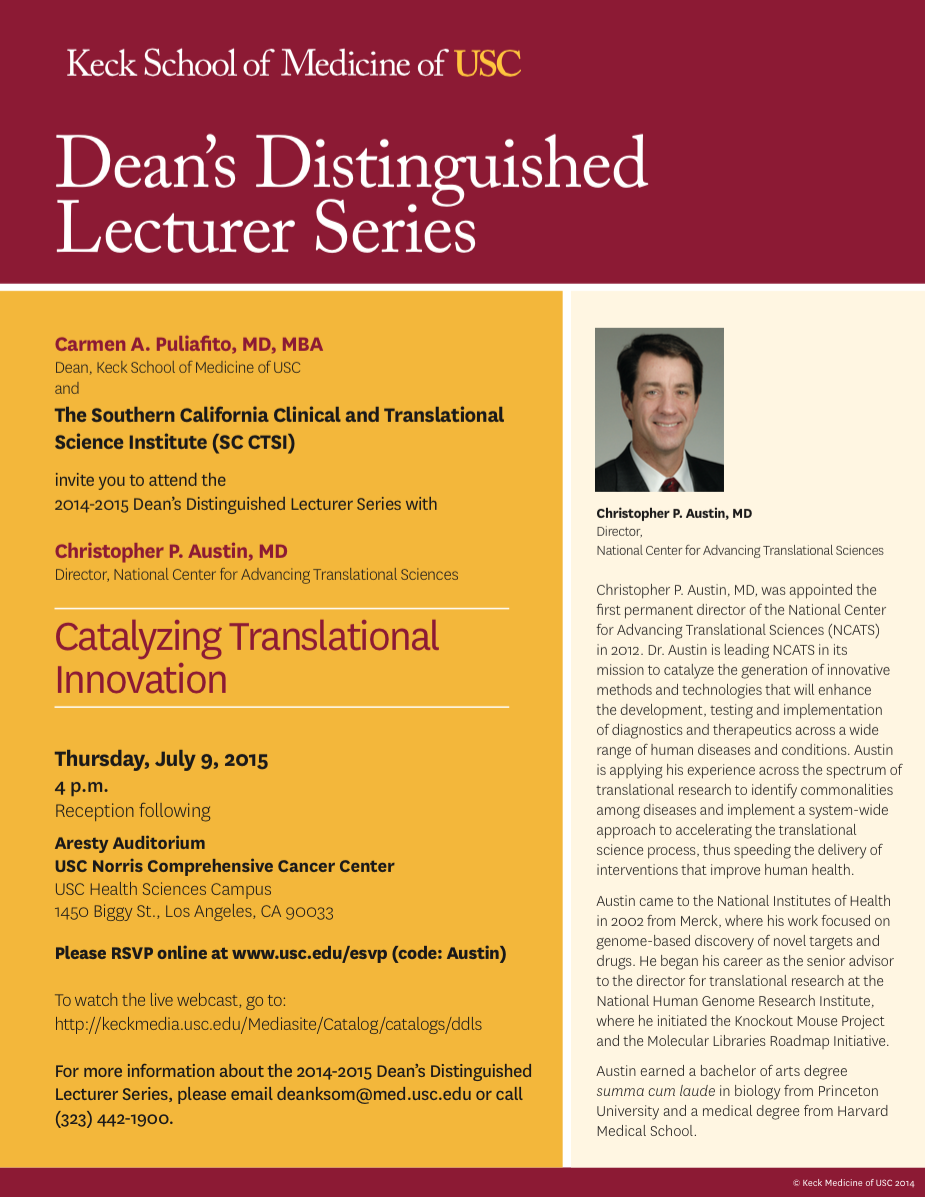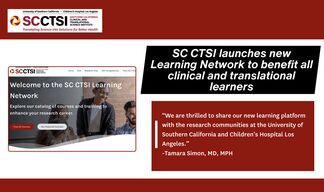Join Us: A Special Lecture on “Catalyzing Translational Innovation”
Speaker: Christopher P. Austin, MD, director of NCATS.
In collaboration with Carmen A. Puliafito, MD, MBA, Dean, Keck School of Medicine of USC, the SC CTSI invites you to join us for a special lecture on "Catalyzing Translational Innovation" with Christopher P. Austin, MD, the director of the National Center for Advancing Translational Sciences (NCATS).
The National Center for Advancing Translational Sciences (NCATS) — one of 27 Institutes and Centers at the National Institutes of Health (NIH) — was established to transform the translational process so that new treatments and cures for disease can be delivered to patients faster.
Dr. Austin provides a unique perspective on the translational science spectrum and the challenges around generating innovative methods and technologies that will enhance the development, testing and implementation of diagnostics and therapeutics. The Q&A and reception afterward will provide you with the opportunity to share your questions and perspectives.
Catalyzing translational innovation
When: Thursday, July 9, 2015; 4 pm
Where: Aresty Auditorium, USC Norris Comprehensive Cancer Center, USC Health Sciences Campus, 1450 Biggy St., Los Angeles, CA 90033
RSVP online: Go to www.usc.edu/esvp (code: Austin)
Join the live webcast
More information about Christopher P. Austin, MD
Christopher P. Austin, MD, was appointed the first permanent director of the National Center for Advancing Translational Sciences (NCATS) in 2012. Dr. Austin is leading NCATS in its mission to catalyze the generation of innovative methods and technologies that will enhance the development, testing and implementation of diagnostics and therapeutics across a wide range of human diseases and conditions. Austin is applying his experience across the spectrum of translational research to identify commonalities among diseases and implement a system-wide approach to accelerating the translational science process, thus speeding the delivery of interventions that improve human health.
Austin came to the National Institutes of Health in 2002 from Merck, where his work focused on genome-based discovery of novel targets and drugs. He began his career as the senior advisor to the director for translational research at the National Human Genome Research Institute, where he initiated the Knockout Mouse Project and the Molecular Libraries Roadmap Initiative.
Austin earned a bachelor of arts degree summa cum laude in biology from Princeton University and a medical degree from Harvard Medical School.
Join us if you want to learn more about the Translational Science Spectrum
The translational science spectrum represents each stage of research along the path from the biological basis of health and disease to interventions that improve the health of individuals and the public. The spectrum is not linear or unidirectional; each stage builds upon and informs the others. At all stages of the spectrum, NCATS develops new approaches, demonstrates their usefulness and disseminates the findings. Patient involvement is a critical feature of all stages in translation.
Join us if you are interested in fixing issues in translation
Researchers nationwide and across the globe face common barriers in translational research that can delay the development of new interventions for patients in need. NCATS studies translation on a system-wide level as a scientific and operational problem to accelerate the development of treatments and preventive strategies for a wide range of diseases.
Learn more about the translational Science Specturm and issues in translation.




